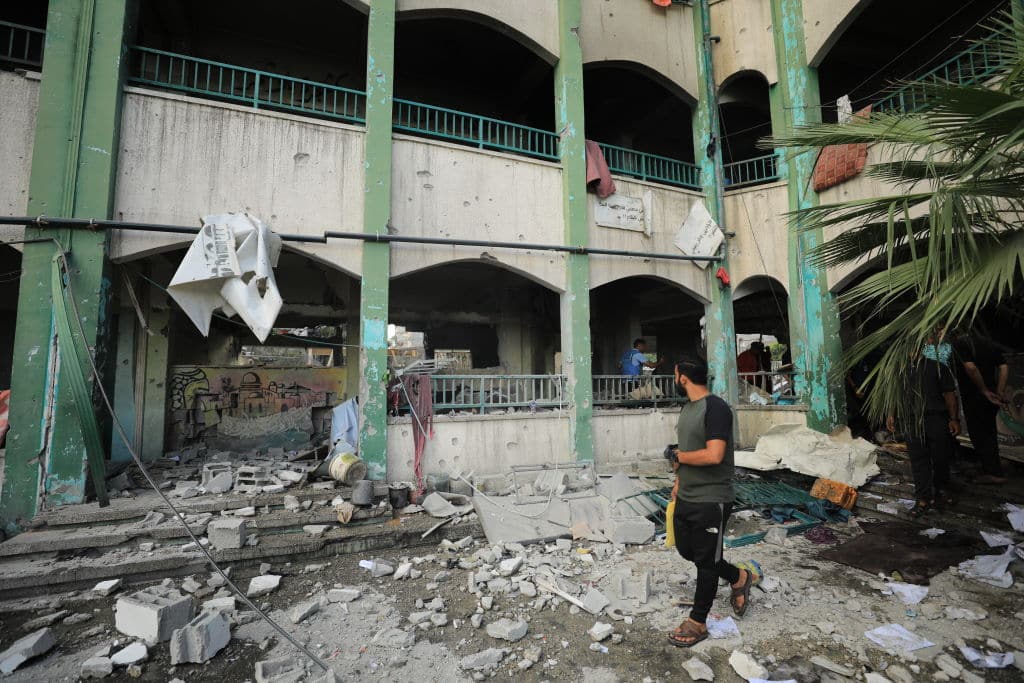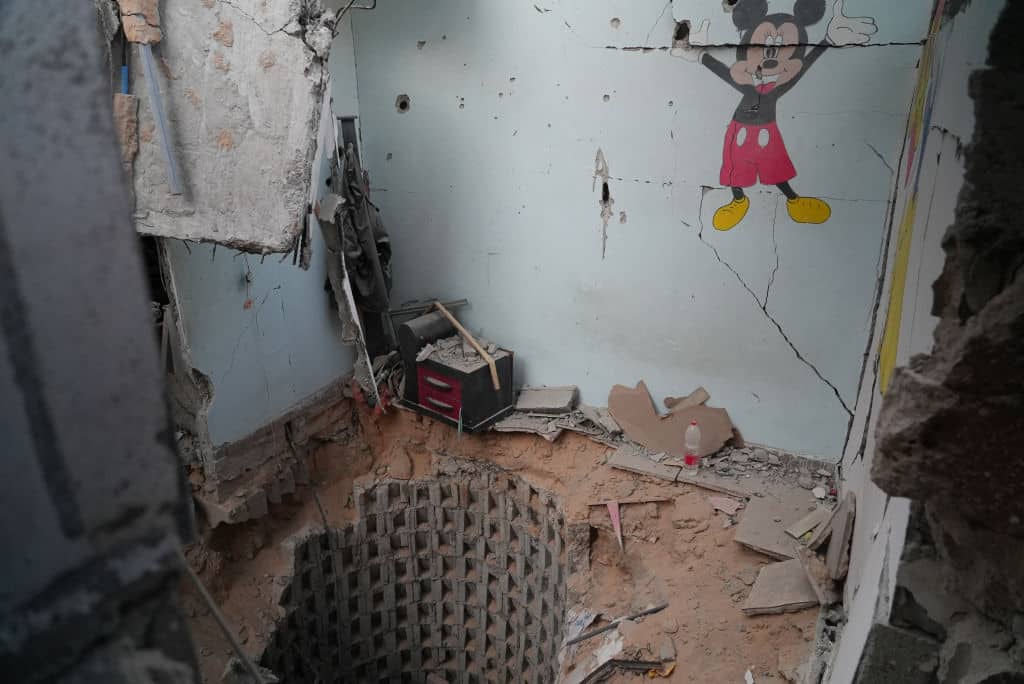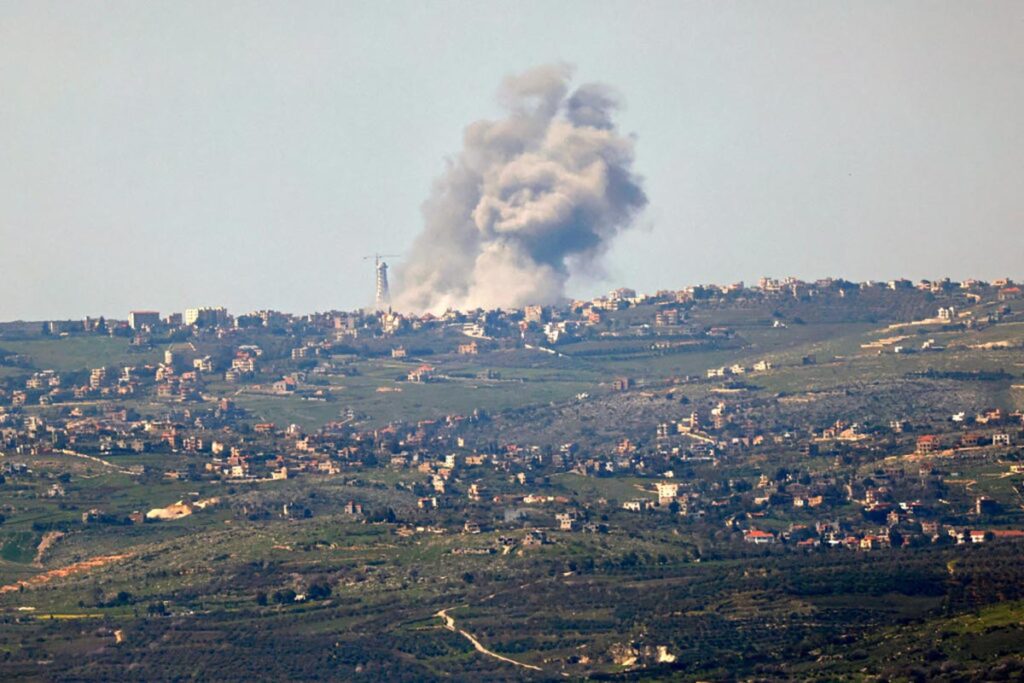
The IDF announced Thursday that it had defeated Hamas’ Rafah Brigade, completing the most significant phase of the war in Gaza.
While operations in Gaza will continue to deal with the remnants of Hamas, the IDF is now shifting its focus to other fronts, including the north to confront Hezbollah and the West Bank to confront terrorist groups there.
War winding down as Gaza operation to conclude
About four months after the IDF entered Rafah in southern Gaza, Hamas’ brigade in the city has been dismantled, with over 2,300 terrorists eliminated and over eight miles of tunnels demolished.

In the coming weeks, the IDF will complete its investigations of the few dozen Hamas tunnels that haven’t been demolished in the area. What comes next remains unclear.
Prime Minister Benjamin Netanyahu has insisted that Israel cannot pull out of the 8.7-mile Philadelphi Corridor since Hamas used the corridor to smuggle weapons and funds into Gaza from Egypt.
On the other hand, the IDF said the vast majority of the tunnels found in the area didn’t cross the border and the ones that did once were mostly out of use, blocked off from both Egypt and Gaza. Instead, it’s believed Hamas did most of its smuggling aboveground through the Rafah crossing — also located in the area — along with smuggling by sea and misusing equipment legally brought into Gaza through Israel.
It remains unclear as well how intact Hamas actually is. The terrorist organization is made up of five brigades split into 24 battalions, each responsible for a different section of Gaza.
Last week, Defense Minister Yoav Gallant stated that “Hamas as a military formation no longer exists. Hamas is engaged in guerrilla warfare and we are still fighting Hamas terrorists and pursuing Hamas leadership.”
The IDF has said that it has destroyed almost all of Hamas’ battalions, but independent analyses and media reports suggest otherwise.

An analysis by CNN, American Enterprise Institute’s Critical Threats Project, and the Institute for the Study of War in August found that, as of July, only three of the 24 battalions were dismantled, while eight were still mostly in operation.
The government even told Israel’s Supreme Court recently that Hamas was still governing Gaza as part of a statement explaining why the IDF does not have enough control over the Strip to be considered an occupying power that would have to take responsibility for the civilian governance of Gaza, as required by international law.
One of the IDF’s biggest trouble spots is central Gaza, which the operation has largely avoided due to concerns that many of the hostages are being held there.
However, northern Gaza has also become a growing issue as Hamas has reportedly managed to rebuild much of its capabilities in the area, even recruiting 3,000 new members.
A standing issue has been the lack of a post-war plan, meaning while the IDF is destroying much of Hamas’ capabilities, there’s no plan for what will replace Hamas. So when the IDF withdraws from an area of Gaza after dismantling Hamas forces, it leaves behind a vacuum, one Hamas has so far been easily able to refill.
Netanyahu has insisted that a post-war plan can only be formulated once the war is over and Hamas is completely destroyed, but many defense officials and experts have warned that without a post-war plan that provides some solution to replace the terrorist group, Hamas will never be completely destroyed.
Israel to shift focus to Hezbollah
Regardless, with the IDF transitioning to more pinpoint raids in Gaza, the pressure has been rising for the military to shift its focus to the north and act more strongly against Hezbollah, which has fired thousands of missiles and drones toward northern Israel since October.

“As we approach the completion of our military missions in the south, we are shifting the center of gravity to the north as part of our commitment to return the residents of the north to their homes after a change in the security situation,” Gallant said on Tuesday.
During a strategic discussion that took place last Thursday, Netanyahu stated that Israel intended to expand the conflict against Hezbollah, saying, “We are heading for a broad campaign of one intensity or another,” according to Israeli media.
On Sunday, Netanyahu stressed that “The current situation will not continue. This requires a change in the balance of forces on our northern border. We will do whatever is necessary to return our residents securely to their homes.”
A sign of how the situation may be changing came last week when Israeli airstrikes targeted a site in western Syria.
While Israeli airstrikes aren’t unheard of in Syria, these strikes stood out as locals labeled them the strongest strikes in years. A few days later, reports by Syrian and American media revealed that the strikes were actually cover for a special commando operation at a Hezbollah precision missile facility located underground.

Israeli special forces were dropped off by helicopters at the facility, where they clashed with Syrian forces before planting explosives inside, grabbing intelligence on Hezbollah’s missile production efforts, and rushing out before destroying the underground structure.
The decision to carry out the risky operation against the Hezbollah site may have been meant to disrupt the terrorist group’s access to precision missiles ahead of an expected escalation between Israel and Hezbollah. These precision missiles can much more accurately hit specific targets compared to standard missiles.
Conflict with Yemen’s Houthis escalates again
Alongside the escalation with Hezbollah, the conflict between Israel and the Houthis – an Iran-backed terrorist group in Yemen – heated up again Sunday.
The Houthis fired a ballistic missile from Yemen toward central Israel, setting off sirens in a wide area early Sunday morning. While multiple attempts to intercept the missile were made, only one interceptor hit it partially. The missile fell apart in mid-air, crashing into a field a few miles away from Ben-Gurion International Airport.
Netanyahu warned after the attack that “The Houthis should have known by now that we are charging a heavy price for any attempt to harm us. Those who need a reminder are welcome to visit the port of Hodeidah.”
Prime Minister Benjamin Netanyahu's Remarks at the Start of the Government Meeting:
— Prime Minister of Israel (@IsraeliPM) September 15, 2024
"We are in a multi-front campaign against Iran's axis of evil, which is striving for our destruction.https://t.co/Kto1KppVQE pic.twitter.com/0CDycl03XN
The prime minister was referencing an Israeli strike that targeted the port of Hodeidah on the Red Sea coast of Yemen in July, which came after a Houthi drone hit Tel Aviv a few days prior, killing one Israeli.
The Houthis have been firing drones and missiles at Eilat in southern Israel, as well as toward commercial and military vessels in the Red Sea, since late last year.
IDF cracks down on terrorism in the West Bank
If three fronts weren’t enough, turns out there’s a fourth front: the West Bank.
In the past month, several bombing attacks have been attempted by Palestinian terrorists based in the West Bank, including one terrorist who made it to Tel Aviv before his bomb seemingly malfunctioned, detonating early. Three other attempted attacks using car bombs were stopped before they could be carried out as planned too in recent weeks.
Alongside the bombing attacks, shooting, ramming, and stabbing attacks have escalated throughout the West Bank too, prompting a large operation by the IDF in several cities and towns in the northern and eastern West Bank in late August.
The operation saw large numbers of troops conduct widespread arrests and tear up roads where roadside bombs were planted. Airstrikes were also carried out against several terrorists throughout and after the operation.


